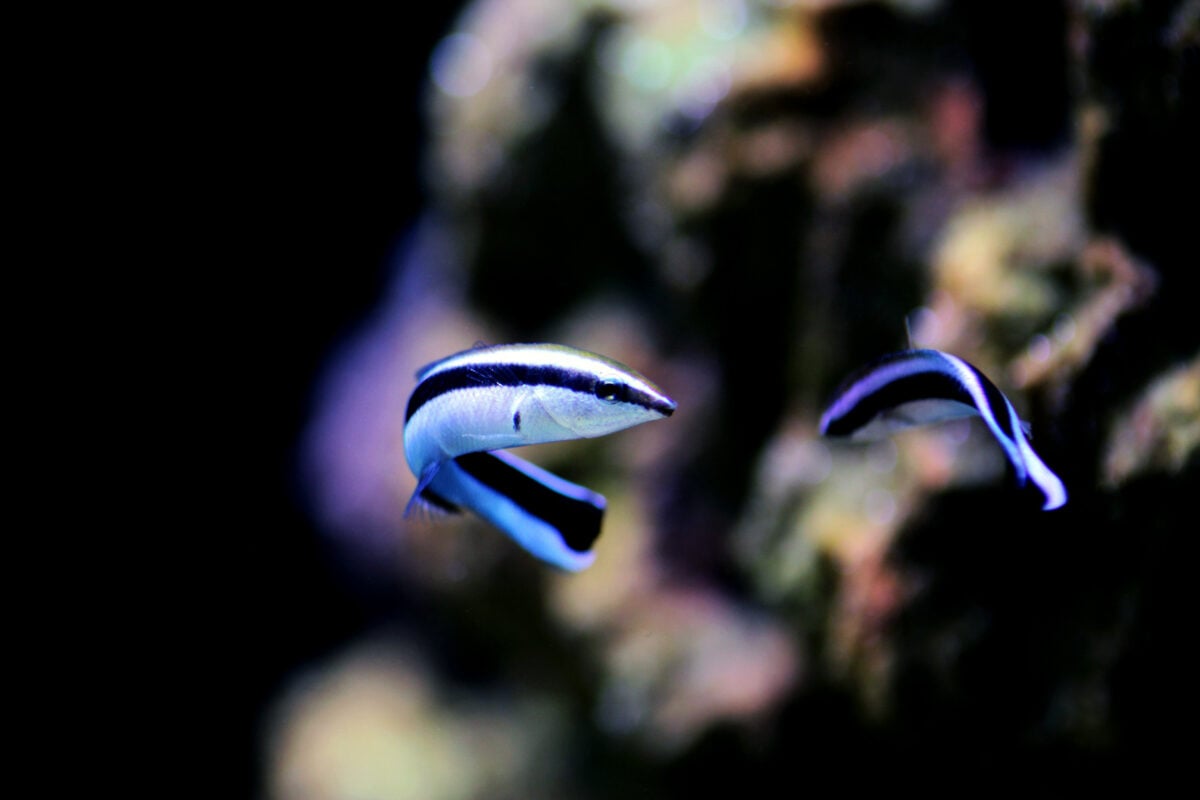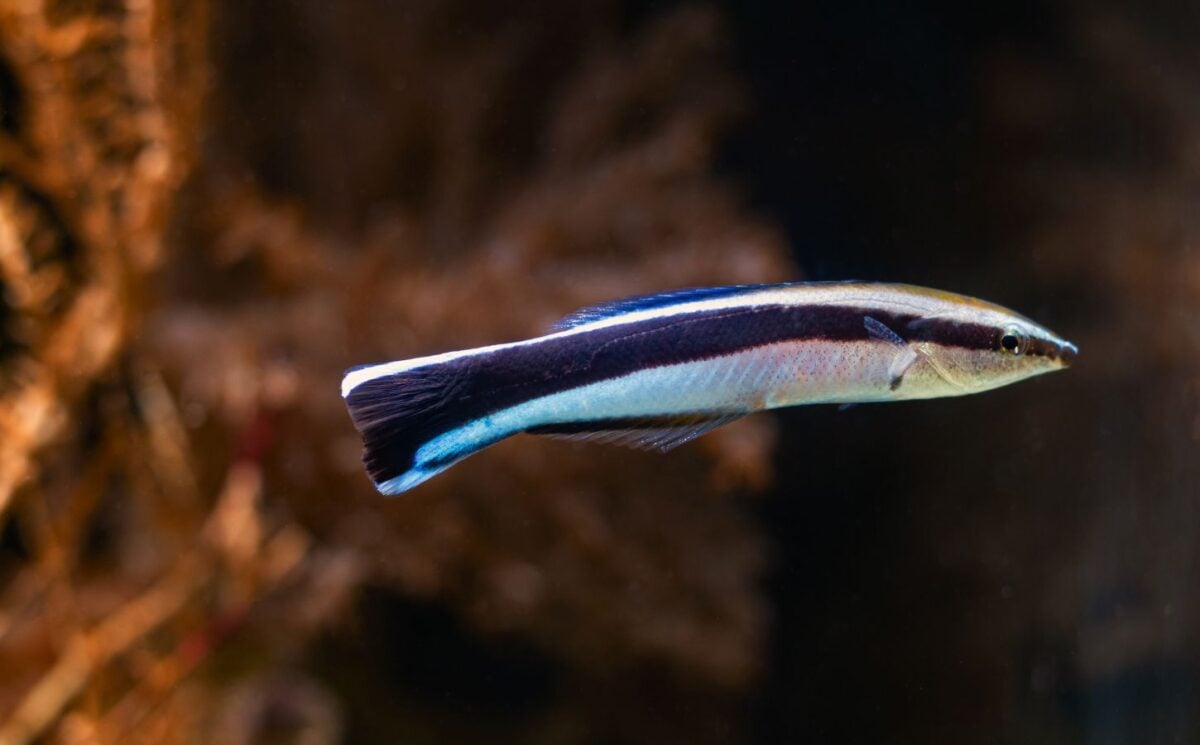Fishes have already proven to be capable of recognizing themselves in a mirror, indicating greater self-awareness than they were previously given credit for. Now, scientists have discovered that a tiny species of fish may check their own size in mirror before deciding to “attack” another fish. They say its the first time a nonhuman animal has been shown to possess this kind of self-awareness.
Read more: Cats Grieve Deaths Of Fellow Companion Animals, Study Finds
The bluestreak cleaner wrasse is a tropical fish that lives in coral reefs and grows to no more than 14 cm. Body size plays a big role in determining dominance hierarchies within groups of cleaner fishes. Researchers at Osaka Metropolitan University showed cleaner wrasses pictures of another cleaner wrasse they had not encountered before. The fishes behaved aggressively towards the pictures, no matter the size of the fishes in them. Half the fishes were then provided with a mirror for a week, while the other half had no mirror, before being presented with another set of pictures.
The mirror group were less aggressive to the second set of pictures showing fishes larger than themselves, while the non-mirror group remained aggressive to all pictures. This suggests the fishes “construct a mental image of their body based on their mirror reflection” and “make a decision whether to attack the photograph based on this mental representation,” the study says.
In the wild, cleaner fishes swim parallel to unknown potential opponents to try to approximate their body size by comparison. Seeing themselves in a mirror first means they are able to assess their own size more accurately.
Non-human animal self-awareness

In 2023, the same research team found that cleaner fishes are able to recognize themselves in pictures and reflective surfaces. The new study reveals another level to the fishes’ self-awareness, as it’s the first time science has confirmed an animal to possess certain mental states indicating “private” self-awareness. These states include a mental image of one’s body, intentions, and goals.
Read more: Chimpanzees Seen ‘Self-Medicating’ With Healing Plants
According to the researchers, the standard mirror test used in the 2023 cleaner fish experiment is “unreliable” for demonstrating self-awareness. It involves placing a mark on the animal’s body and showing them their reflection to see if they will try to remove the mark. But animals who may not be motivated to remove “an ecologically meaningless mark” will be deemed as lacking self-awareness. The new study instead evaluates self-awareness by using “ecological characteristics” that will be more motivating for the animals. In the case of the cleaner fishes, that characteristic is their body size.
The study findings “help clarify the similarities between human and non-human animal self-awareness and provide important clues to elucidate how self-awareness has evolved,” doctoral candidate and lead author Taiga Kobayashi said in a statement.
Plant Based News does not condone the use of animals in research.
Read more: Elephants Call Each Other By Unique Names, Study Finds






